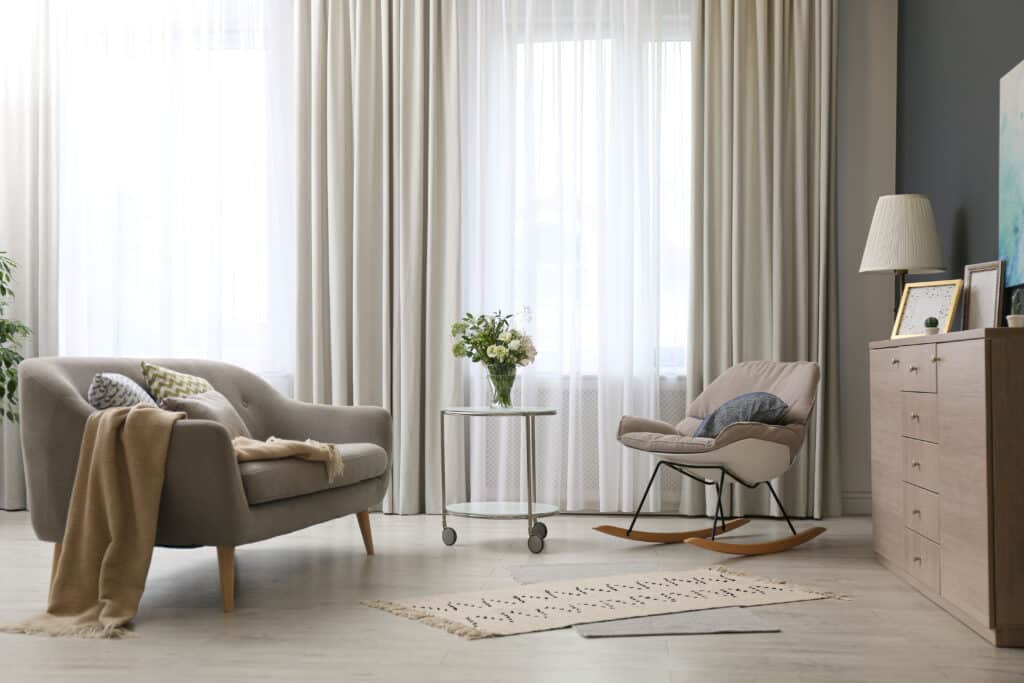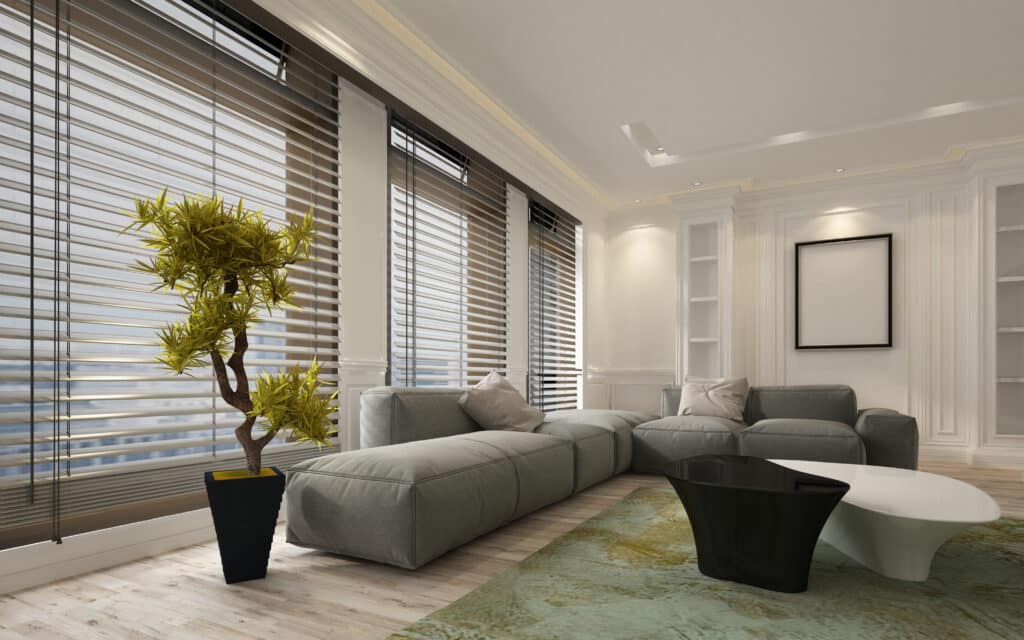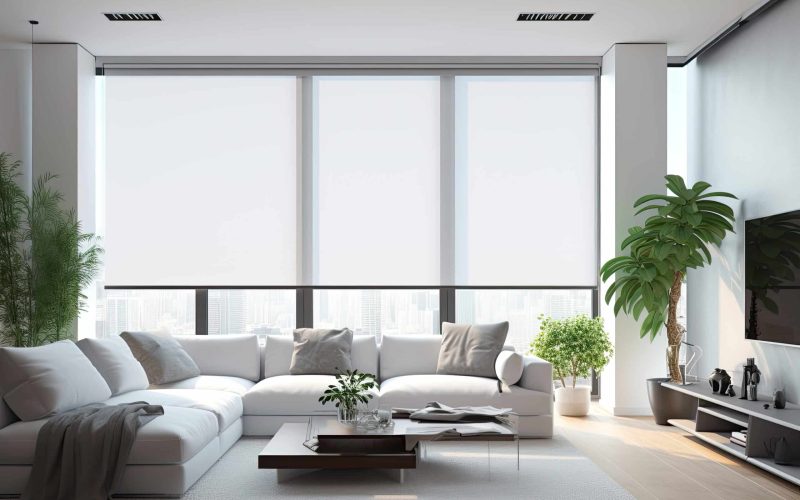When it comes to interior design, layering is a concept that can truly transform a space. The skillful combination of various textures, like blinds, curtains, and shades, can create a unique look that not only adds depth and visual interest but also enhances the functionality of a room. In this long-form post, we will explore the art of layering and how it can be used to craft a personalized and stunning living environment.
The Fundamentals of Layering
Layering is the practice of adding multiple elements, such as textures, fabrics, or materials, to a room’s decor. It allows for the juxtaposition of different elements to create a balanced and visually appealing space. The use of blinds, curtains, and shades in layering is an excellent starting point because of their wide range of textures.

Blinds
Blinds, whether they are vertical or horizontal, come in various materials, including wood, aluminum, and fabric. The choice of blinds can significantly influence the overall aesthetic of a room. Wooden blinds bring warmth and elegance, while metal blinds offer a sleek and modern feel. Fabric blinds provide a soft and cozy texture. Selecting the right blinds can set the foundation for your layering project.
Curtains
Curtains add an additional layer of texture and are an essential component of any layering scheme. They come in countless patterns, colors, and materials, such as silk, velvet, and linen. The thickness and drape of curtains can alter how light enters the room, which is an important consideration in layering. Thicker curtains create a sense of coziness and privacy, while sheer curtains allow natural light to filter through, creating an airy atmosphere.
Shades
Shades, like Roman or roller shades, offer versatility in terms of light control and privacy. They are made from various materials, from sheer and light-filtering to blackout. The choice of shades depends on your functional needs and style preferences. The texture and color of shades can complement the blinds and curtains, adding another layer of visual interest.
Creating a Harmonious Look
Now that we have discussed the key elements involved in layering, let’s explore how to combine them to achieve a harmonious and unique look in your space.
Color Coordination
The first step in layering is to consider the color palette. Blinds, curtains, and shades should be chosen to complement the existing colors in your room. You can match the colors or opt for complementary shades that add depth for a cohesive look. Neutral colors like white, gray, or beige are popular choices because they easily blend with other elements in the room.
Texture Variety
The beauty of layering lies in the diversity of textures. Experiment with mixing smooth, rough, shiny, and matte surfaces. For instance, if you have sleek metal blinds, contrast them with plush, velvet curtains. This contrast adds visual intrigue and engages the sense of touch, making your space feel more inviting.
Layering for Functionality
Layering isn’t just about aesthetics; it’s also about functionality. The combination of blinds, curtains, and shades allows you to control light and privacy according to your needs. Consider layering blackout shades with sheer curtains in the bedroom for a balance between privacy and light filtration. In the living room, you might choose light-filtering blinds with heavy, thermal curtains to regulate the temperature and create an inviting atmosphere.
Play with Patterns
Don’t be afraid to introduce patterns into your layering scheme. Geometric or floral patterns on curtains and shades can add a playful or sophisticated touch to your room. Mix patterns cautiously to avoid overwhelming the space; for instance, use a bold pattern on the curtains and a more subdued one on the shades.
Experiment with Heights
Layering doesn’t have to be limited to one window treatment per window. Experiment with layering blinds, curtains, and shades at different heights to create a dynamic look. For instance, hang curtains above the window frame to elongate the room visually, and install blinds or shades within the window frame for a clean and structured appearance.

We Can Help with the Art of Layering
The art of layering using blinds, curtains, and shades is a creative and practical way to enhance your living space. By thoughtfully combining textures, colors, and patterns, you can achieve a unique, personalized look that reflects your style and meets your functional needs. So, don’t hesitate to experiment and make your space truly yours, layer by layer. Visit us or Call us at 402.932.9711 and request an at-home consultation today.

